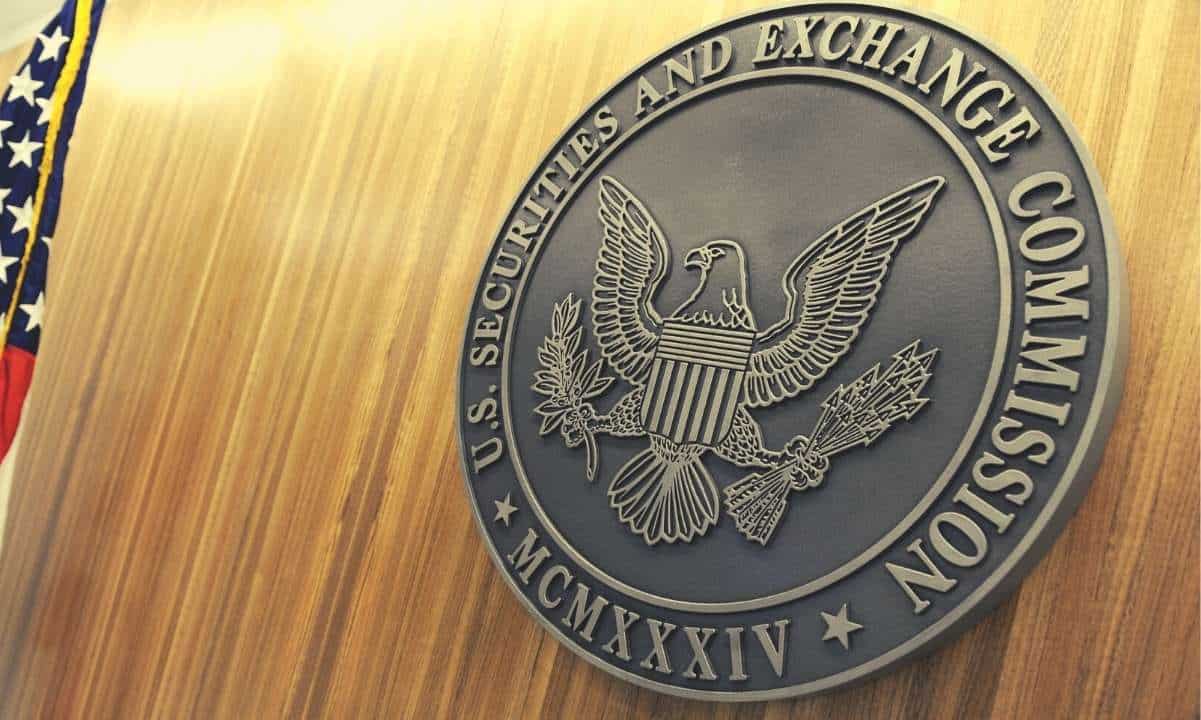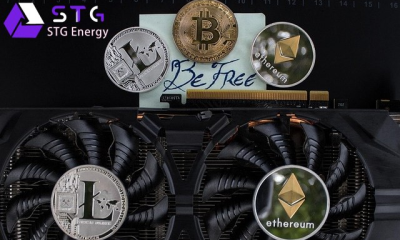Price Analysis
How SEC Regulations May Impact the Crypto World?

Crypto trading has come under intense scrutiny in the past few months, as the debate about cryptocurrency regulation gets louder. The United States recently made a decisive move toward cryptocurrency trading regulation, when the Securities and Exchange Commission (SEC) recently announced new cryptocurrency regulations. In this article, we’ll explore what the SEC’s regulations mean for global crypto trading. So, let’s dive right in.
Pros and cons of a more regulated cryptocurrency market
Advantages of cryptocurrency regulation
- Crypto trading will become legitimate globally
So far, many countries refuse to mainstream crypto – with some nations going so far as banning cryptocurrency altogether. But with a regulated trading environment, every transaction becomes more legitimate in the eyes of international lawmakers. More investors may also come forth, now that regulations are present to offer a certain degree of legal protection.
- Protection for investors
Most crypto exchanges take complete control of their users’ accounts, which can make every user vulnerable to any large-scale, exchange-wide hack. In 2021, the US saw a loss of $14 billion in crypto exchange hacks and thefts. Regulation will place safeguards to ensure that new and inexperienced crypto investors are able to make sound and safe investment decisions. Plus, greater scrutiny will also help identify occurrences of fraud or any deliberate contravention of cryptocurrency trading rules.
- Better quality token issuance
Regulation of cryptocurrency will put up certain important barriers about who can invest in the market, where & how the coins will be mined, and what type of issuance process needs to be followed when there’s an initial coin offering (ICO).
Disadvantages of cryptocurrency regulation
- Lack of clarity about investor accreditation
What makes a potential investor eligible for investing in cryptocurrencies or blockchains? Is it only their net income? Or perhaps their experience in the crypto trading market? Or something else? Regulations will create a restrictive environment that may exclude viable investors purely because they don’t fit a particular mold.
- Difficult to overcome barriers for nascent/developing projects
In order to improve the quality of the type of projects that cryptocurrency can be invested in, regulations may put up restrictions that may inadvertently become unsurmountable hurdles for small/developing projects. Even if the idea is feasible and it offers great value in the future, projects that don’t fit the specifications might not be able to access crypto funding, bringing them to an early end.
- More complicated crypto trading process
Although cryptocurrency regulations make trading safer, the sheer number of processes and specifications that traders have to fulfill may make the very process of cryptocurrency trading cumbersome and distasteful. The regulations that are designed to help the market thrive, maybe the very ones that could end up suffocating the industry.
Considering the above pros and cons, now it’s time to understand what regulatory changes the SEC has brought in for the cryptocurrency market and how they may impact the crypto world.
What did the SEC have to say about cryptocurrency trading regulations?
The United States has been one of the countries at the forefront of exploring what a regulated crypto world would look like and operate like. In April 2021, the U.S. Securities and Exchange Commission (SEC) announced the following regulatory updates –
- Crypto exchanges must register as securities trading platforms with the SEC
The SEC announced that the Top 5 crypto exchanges which were operational in the US, had almost 99% of their transactions rooted in securities. This announcement came when the SEC brought charges against Coinbase for hosting 9 tokens, which they deemed were actually securities, according to the results of the Howey Test. The cryptocurrencies in question are as follows –
- Powerledger (POWR)
- Flexa’s amp (AMP)
- DerivaDAO (DDX)
- Kromatika (KROM)
- Rally (RLY)
- XYO (XYO)
- DFX finance (DFX)
- LCX (LCX)
- Rari governance token (RGT)
The SEC believed that it would be in the best interest of everyone involved, if crypto exchanges would register with them as securities trading platforms and start adhering to certain common regulatory requirements, to ensure greater security, flexibility, and scalability. The registration of exchanges as security platforms is expected to make the opaque cryptocurrency trading world more transparent and prevent any fraudulent activity like account freezing, wash trading, or front running. All crypto exchanges will now need to be audit-compliant and ready to provide reports to the SEC on demand.
- New tokens will be subjected to tough scrutiny and checking
Any new tokens that will be issued will face severe scrutiny and will be subjected to certain enforcement actions, which will be decided in the next couple of months. ICOs have been the recipients of enforcement actions by the SEC in the past. Experts believe NFTs and DeFi’s may be next. According to the SEC, as long as any new tokens are sold to buyers under the banner of “investments”, they will be considered to fall within the purview of the SEC.
- Stablecoins will be monitored closely to prevent fraudulent activities
Stablecoins, whose values depend on fiat currency, like the dollar, will be closely monitored to prevent any misrepresentation of cash reserves. Through regulatory control, the SEC hopes to reduce the chances of sanctions evasion, insider trading, deception, speculation, or money laundering, amongst other crimes. This will, in turn, prevent investor exploitation and market manipulation not just in the US, but globally as well.
- Cryptocurrency Enforcement Unit to be developed and trained
The SEC confirmed its plans to invest more in its Cryptocurrency Enforcement Unit and informed the public of its intention to have a larger, dedicated, and state-of-the-art team in place soon. The goal of this unit will be to closely monitor all cryptocurrency trading within the US and to investigate and prosecute identified crypto crimes.
How will the crypto world be affected by these new regulatory initiatives?
The implementation of the SEC’s new regulations will definitely make the cryptocurrency world safer and more transparent. There is high potential for reduction in crimes and growth in the industry overall.
Experts also believe that the SEC’s regulations will also soothe an otherwise volatile market and make cryptocurrency prices more stable. The regulations will also set forth what digital transformations and technological advancements crypto exchanges need to undertake, to become more compliant with the SEC. Additionally, these regulations are also expected to make the technology behind the blockchain greener, thereby reducing their carbon footprint and making them energy efficient.
In terms of day-to-day crypto trading, experts believe that bigwig currencies like Bitcoin and Ethereum will be able to safely navigate the turbulent times of regulatory implementation. Exchanges like Gemini and Coinbase have already started making the changes necessary to comply with the SEC. Trading on these exchanges can give investors much better and much safer opportunities to invest their money.
















